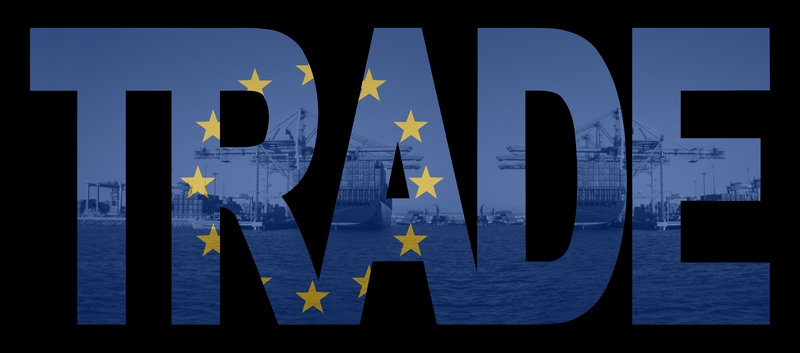
Should Europeans care about Doha?
by Katinka Barysch
Are the Doha trade talks finally dead? Following the failure of the latest ministerial meeting in Geneva on July 29th, there will be little appetite for another big push to resolve disputes over farm subsidies and manufacturing tariffs. But unless the 150-odd WTO members agree on the outline of a deal in 2008, the new US administration (and the new EU Commission) would pretty much start from scratch in 2009. A final deal could then take another five years or more. Perhaps it would be better to give up on Doha?
Europeans do not seem to care very much. They worry more about the impact of the global downturn on their mortgage, job and pension. Many EU governments have also appeared distinctly unenthusiastic about trade liberalisation lately. French President Sarkozy blamed the Irish No to the Lisbon treaty on the ‘overly liberal’ trade policies of Trade Commissioner Peter Mandelson. During the Geneva talks, eight other EU countries lined up behind France (including Italy, Greece, Poland and Hungary). They argued that Mandelson’s first responsibility was to protect European jobs and incomes – in particular in the farm sector – not to finish a round of trade talks of dubious economic value.
Would the failure of Doha be a disaster for Europe? Not on the face of it. Calculations of the direct economic benefits from finishing the round have gradually been reduced (and most estimates are now well below 1 per cent of global GDP). With many of its biggest trading partners – China, Russia, ASEAN, the EFTA countries – the EU has special agreements on trade and investment, or is in the process of negotiating them (albeit with limited success). And many poorer countries may be more willing to grant the EU better access to their markets on a bilateral basis – without having to extend the same privileges to China.
So should the EU just let Doha die? Is reviving the round worth the risk of internal EU divisions and grumpy European farmers? Yes, because the costs of its failure could be huge. Here are just four of the issues to take into account.
* While Sarkozy and Berlusconi are wrong to claim that Mandelson is ‘selling out’ European farmers, the EU’s offer on agriculture is not negligible. It includes a complete abolition of export subsidies and a considerable reduction in both domestic farm support and import tariffs. Many development experts say the offer does not go far enough. But at least it would lock in some progress on CAP reform. That matters since the EU is conducting its own ‘health check’ on the CAP this year. And the issue of farm-sector reform will come up again by 2012, when EU countries will haggle about the EU’s new long-term budget. Accelerated CAP reform would free up billions of euros that would be better spent on innovation, climate protection or development. To keep CAP reform going is particularly important now that some EU politicians use the global food crisis as a phoney argument for more, not less, farm support.
* It is true that Doha would not result in drastic new tariff cuts for manufactured goods. But business in Europe and elsewhere is wrong to conclude that the current trade round doesn’t matter for them. As Patrick Messerlin, a French trade economist, has convincingly argued, the Doha round is hugely important for locking in the progress that has been made over the last 15 years. Most countries around the world now apply tariffs that are much lower than the ceilings fixed in the Uruguay round in 1993 (so-called bound tariffs). They could push them up to their bound levels without penalty at any time. Some emerging markets, such as Brazil, have already responded to slowing growth by nudging up their tariff protection. Binding manufacturing tariffs nearer their currently applied levels would reduce that risk, and give companies the certainty that they need to trade and invest abroad.
* If Doha fails, the WTO could lose much of its credibility, and the trend towards bilateral and regional trade agreements would accelerate further (200 of those are already in place, another 200 are being negotiated or planned). Economists disagree over whether this bilateralism is a good thing (a push for market opening while global talks remain stuck) or a bad thing (leading to a dangerous and costly fragmentation of the international economy). It certainly weakens the multilateral trading system. With only half of all Americans now believing that international trade is good for them, protectionist sentiment rising in Europe, and many emerging economies becoming more assertive in their trade policy, the world needs stronger global trade rules and dispute settlement mechanisms, not weaker ones.
* Finally, as Charles Grant and I have argued in our recent report ‘Can Europe and China shape a new world order?’, this is a critical time for persuading emerging powers that multilateralism actually works for them. They should work through international rules and organisations, not follow narrow-minded power politics. The WTO (and its predecessor, the GATT) is one of the cornerstones of the post-war multilateral system and the one that arguably matters most for China, India, Brazil and other rising economies. If the WTO does not deliver, how can we persuade these countries that the UN, the World Bank or the Kyoto regime on climate change matter for them?
Katinka Barysch is deputy director of the Centre for European Reform.
